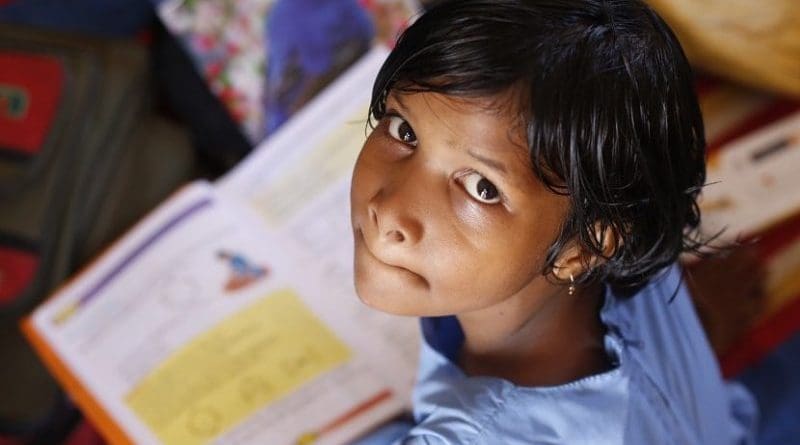One Nation One Exam: Opening Pandora’s Box Of Challenges – Analysis
By IMPRI
By Chandrachur Singh*
The endorsement and execution of a one-size-fits-all approach, packaged with the help of catchy slogans like ‘one nation one test one admission’ under the New Education Policy 2020, isn’t something India should be doing.
Noted British philosopher Sir Isaiah Berlin in his book, The Crooked Timber of Humanity, put a classic defense of why straightjacketing may not be the best foot forward in resolving complex social issues of our times. In dismissing one-stroke attempts at bringing heaven on earth and defending the need for diversified opinions and values for resolving intricate issues, Sir Berlin was only using the famous argument of Immanuel Kant that “out of the crooked timber of humanity, no straight thing was ever made”.
The quote holds immense significance in the context of sweeping reforms that have been intended under the New Education Policy (NEP). Reforming the education sector — severely plagued with myriad, complex, and endemic problems ranging from issues related to uneven academic standards and structures to funding, faculty recruitment, promotions, content delivery, and governance, among others — is certainly applaudable. But not everything under the NEP is green.
According to the Ministry of Human Resources and Development notifications, the National Testing Agency has been authorized to conduct an aptitude-cum-subject-specific tests for admission to all central universities. The proposal under active consideration is likely to be implemented in the academic session 2021-22.
One of the major arguments given in support of the proposal is that certain universities and colleges’ cutoffs have been steadily soaring. It is almost absurd to ask students to obtain 100 percent to get admission in these institutions. The proposed test, as such, would provide a level-playing field to students by leveling the diverse standards of teaching and marking across boards.
This is exactly where the problem starts.
Contradictory scenarios emerging
While such a proposal may work for unitary institutions, it seems to be failing the tests of objectivity, particularly when applied to federal and affiliating universities. For example, in the case of Delhi University, where the soaring cutoffs have indeed been the cynosure of all eyes, it has been said that the marks of Class XII would remain relevant and that the cutoffs shall be determined on the combination of the marks obtained and the aptitude test conducted for admission to a particular course. The hope is that this will reduce the cutoffs as those who may have scored high in boards may or may not be able to repeat the feat in an aptitude test for whatever reasons or factors.
Even if one were to take such an argument on face value, a realistic assessment of numbers offers a very contradictory scenario.
Consider this – according to data released by the Central Board of Secondary Education (CBSE) in 2020, of the total students who appeared for Class XII examination, around 1,57,934 scored over 90 percent, 38,686 had more than 95 percent, and over 5,000 students scored a perfect 100 percent. These numbers become particularly significant in the backdrop of the limited number of seats available at the University of Delhi – approximately 70,000 in all.
This means that even if one were to limit DU admissions to CBSE board students alone, the competition would still remain tough. This is because halving the board marks would mean that students would still be at the same level, over a lakh. And even if half of them score very high in the aptitude tests and match it with their performances in the board exams, the resultant percentile cut-off would still be unrealistically higher. A few elite colleges’ archaic reputations will only ensure that the demand remains much higher than the supply.
Undermining the autonomy of institutions
Additionally, by its nature, a common aptitude test severely undermines the autonomy of an institution/university to design its own standards and yardsticks of assessing its prospective students’ capabilities. After all, what distinguishes a good university from a not-so-good one is the kind of courses it offers and the standard at which teaching and learning and assessments are done. So, shouldn’t a university have its right to check or to ask for particularities?
While such a question certainly makes more sense in the case of state universities, which are mandated to have special provisions to accommodate ethnic or lingual diversities,it also holds true for central universities, given the fact that their feeder cadre or intake pool operating in different states largely remains intra-territorial – limited to the students of that state alone.
So, except for adding on to the teenagers’ high stress levels and double-crossing them, the proposed reform would achieve nothing. The stress will certainly be more aggravated in the upcoming academic year because those appearing for boards in May-June will be required to take the aptitude test almost immediately. Students have been away from the schools for almost a year now and may not be the best Guinea pigs for this nature’s experiment.
A common test for all central universities may lead to the blooming of new coaching factories and allow institutions to ride over their inherent deficiencies.
The proposal may offer two benefits, however. First, it may lead to the blooming of a new category of coaching factories. Second, it certainly would allow institutions to ride over their inherent structural deficiencies and limitations swiftly. For the elite ones, in particular, it would remain business-as-usual — steep cut-offs without offering or catering to the prospective students’ right to know what is in store for them.
*About the author: Dr Chandrachur Singh teaches Political Science at Hindu College, University of Delhi, and Teaching Fellow at University of Birmingham, UK.
Source: This article was published by IMPRI, and first appeared in The Print: The idea of ‘one nation one exam’ double-crosses teenagers, shoots up their stress levels on March 5, 2021.

